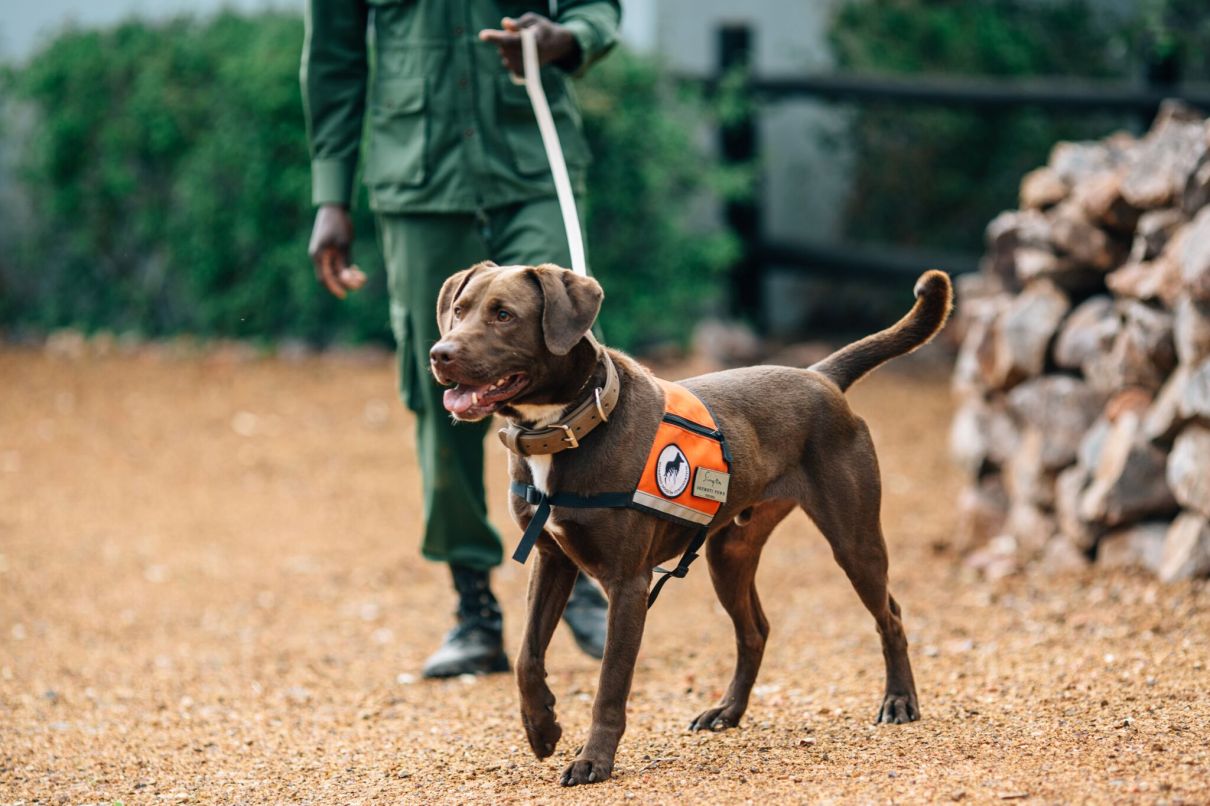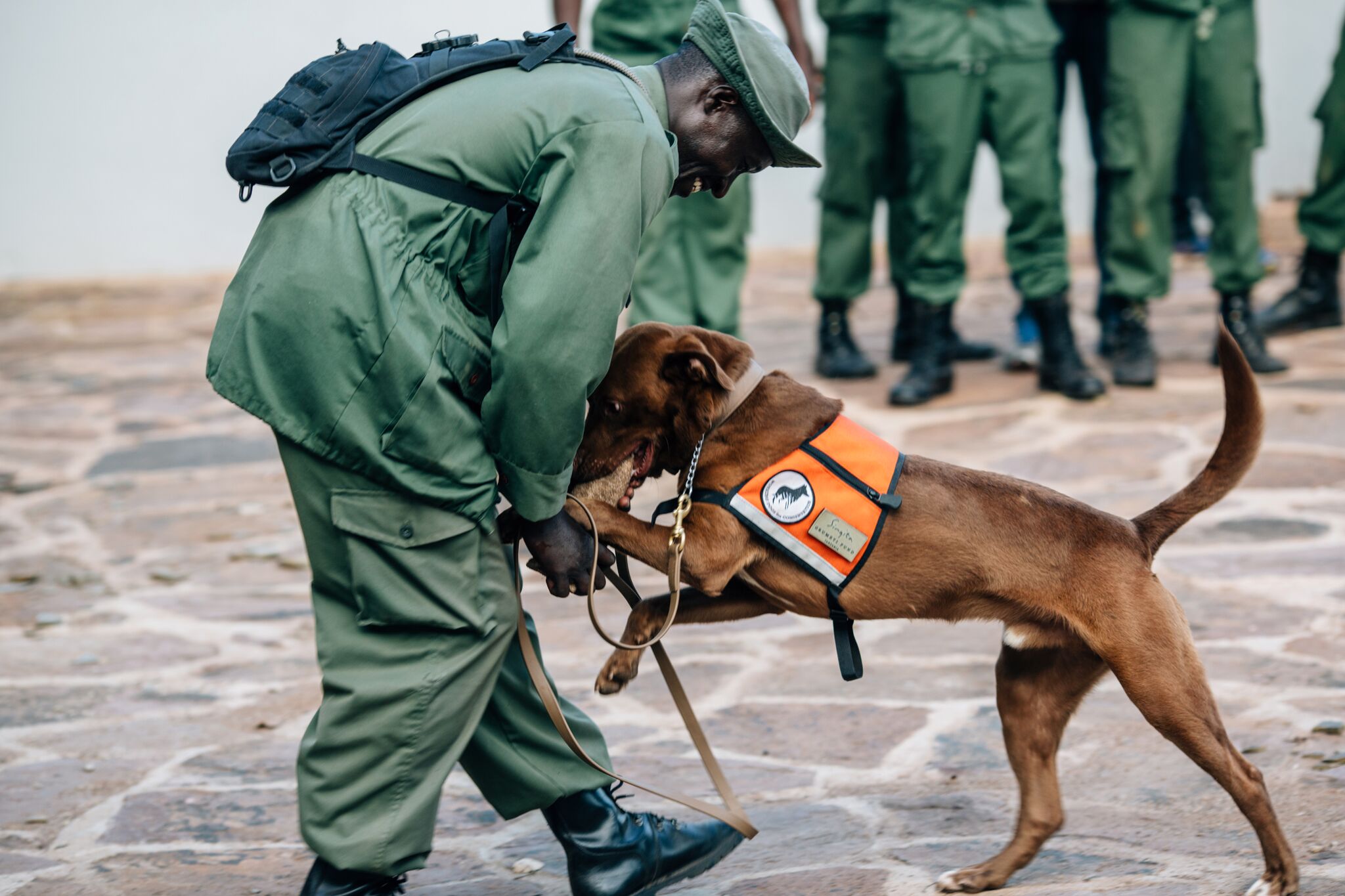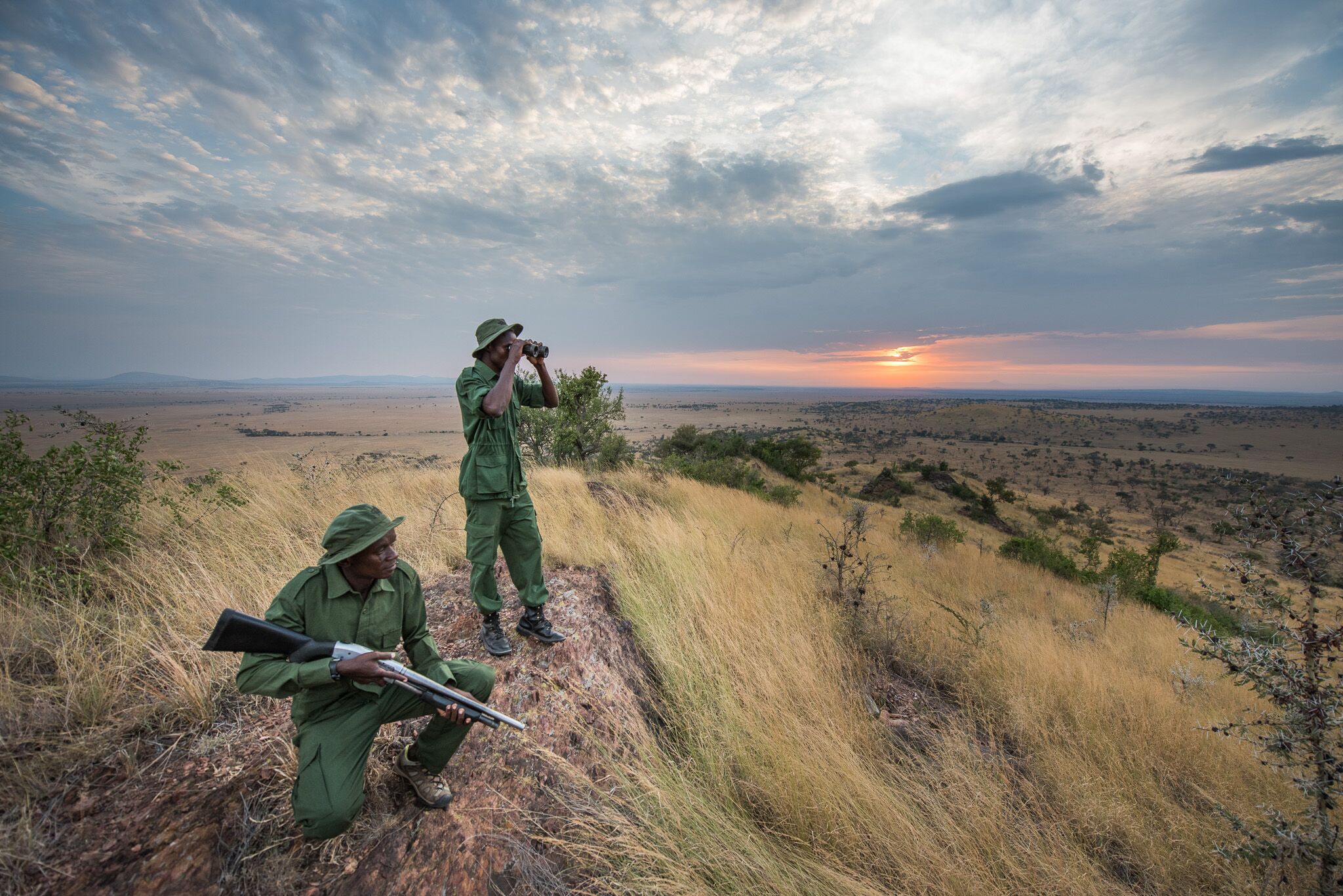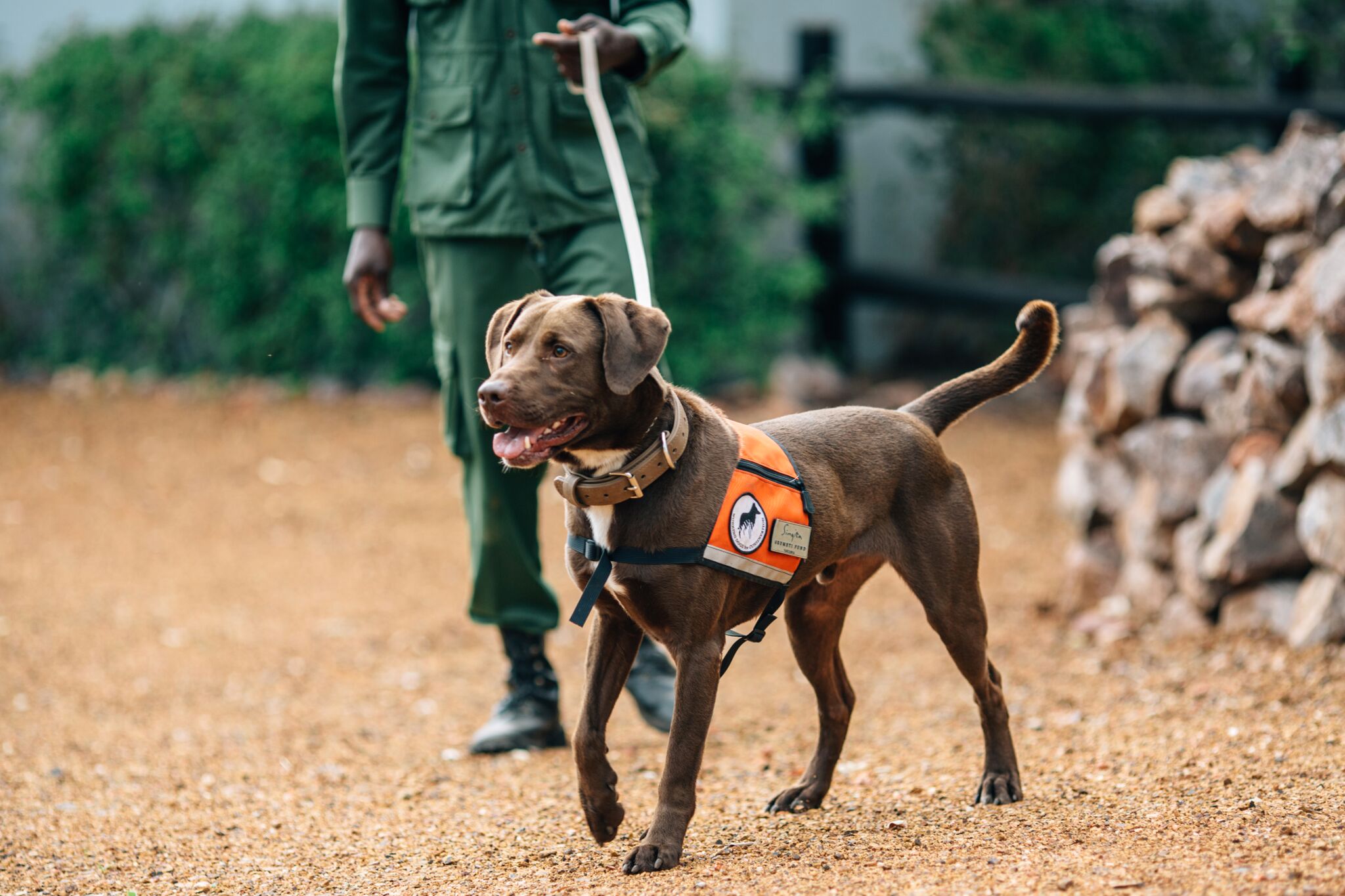Four Legs Good

How packs of super-trained canines took over the front line of wildlife poaching in Africa.

South Africa holds nearly 80 percent of the world’s rhinos and has been the country hit hardest by poaching criminals, with more than 1,000 rhinos killed each year between 2013 and 2017. Thankfully, in the last two years, anti-poaching strategies seem to have taken effect and in 2018 the number of rhinos killed for their horn fell by a quarter to 769 for the year, according to Save the Rhino.
But this does not mean rhinos are thriving. At least two rhinos were killed each day in 2018. More action is needed to stop the illegal trade and ensure rhinos have a positive future, and more support for anti-poaching work.
Singita is a luxury safari operator and conservation brand with 15 different lodges across six African regions. Its non-profit conservation partner — through which it carries out conservation and anti-poaching work — is called the Grumeti Fund. With around 350,000 acres to maintain and protect, there is a lot of ground for its rangers to cover. Observation posts are manned 24/7, with a series of scout patrol camps throughout the protected area. but poaching had become “a major issue”, according to Singita’s head of canine unit in the Sabi Sands, South Africa.

Coming as an example of how philanthropy can have an instant and visible effect, in 2017 a guest staying at the lodge saw an opportunity to help. Since their first visit they have donated over US$300,000 to establish a four-dog anti-poaching canine unit. Their generous contribution allowed the organization to develop the program, including state-of-the-art kennels, trainers and care for the dogs.
According to the head of the team in Tanzania (who did not want to be named for security reasons), bush meat poaching is currently the biggest threat to wildlife in this area. Almost every species is under threat from the illegal bush meat trade, and human wildlife conflict. This extends to plains game, lion, leopard, elephant, hippo and more.
“The dogs also work as a mechanism to deter poaching. When poachers know about the effectiveness of the dogs and that the job is becoming risky, it can be the reason for a person to stop,” he says.
“As a net effect, our losses after the implementation of the elite canine unit and law enforcement operations are marginal to almost zero, which we consider an incredible success. Within South Africa, sadly, we are losing, at the very least, one rhino per day, but this is not so on our property.” The Grumeti Fund canine unit is comprised of rescue dogs from the US. It takes a very specific type of dog — Belgian Malinois and Chocolate lab mixes, to be precise — to be able to work in the unit. They have to be extremely competent and highly motivated.
The dogs are expertly trained and able to perform multiple functions, from pursuing intruders to sniffing out contraband and ammunition from vehicles and bags. Dogs are trained by Grumeti Fund’s partner Working Dogs for Conservation who brought in an expert trainer from the American Society of Canine Trainers (ASCT). The dogs were trained in the US before coming to Africa, where the training continues.

When the dogs first arrived, they were only trained in detection but have since gone on to become expert trackers as well. ASCT comes to Singita Grumeti several times a year for refresher training, constantly developing handler skills and dog effectiveness. The handlers play a critical role in the success of the canine unit and it now has six handlers whom are all now certified by ASCT. To continue supporting this programme, Singita Serengeti guests have the opportunity to donate to the Grumeti Fund and in return, can join the canine unit during one of their training sessions.
Due to the success of the canine anti-poaching unit, all forms of snare poaching have been eliminated in the Sabi Sands. This has affected countless other species of animals too. It can take up to two years to train a dog with all the necessary requirements that will be suitable for the anti-poaching unit. Of course, there are always two sides to every story, and those poaching for bushmeat are usually doing so to feed their families. Singita says it is helping the local communities by supporting local business through sourcing ingredients from small, local businesses. Singita Serengeti buys 80 percent of its fresh fruit and vegetables from the Grumeti Horticultural and Marketing Co-op Society: a partnership comprised of 72 local, small, highly sustainable and environmentally friendly businesses.
The Grumeti Fund has established a program around the diversification of livelihoods, by training people to become entrepreneurs through businesses that do not impact negatively on the surrounding natural resources. Slowly but surely they are enabling more people to move away from the poaching industry. One example of this is a beekeeping and honey production business that supplys the Singita lodges and camps. The programme runs across the 21 villages on the boundary of the protected area and has been very successful.
As Africa's population grows rapidly, putting untold pressure on pristine, wild areas, giving people the skillset and education to develop their economies without relying on poaching along with environmental education are two of the most important ways to continue conservation of wildlife.
Singita’s CEO & Founder, Luke Bailes says, "Community partnerships only works if our commitment is so deep that they trust that preserving the land, is in their interest."
Guests can support any of these conservation or community projects via Empowers Africa (www.empowersafrica.org/partners/singita), an NGO which has partnered with Singita by acting as their fiscal sponsor.








